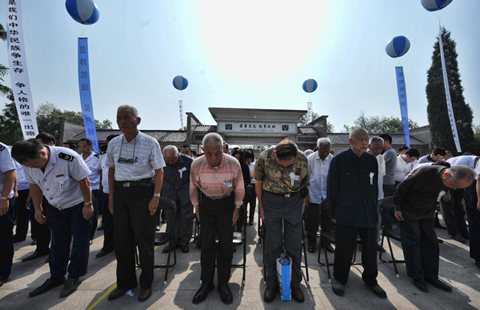New 'norm' in China is yet to come about
Updated: 2014-09-05 10:06
By Ed Zhang(China Daily Europe)
|
|||||||||||

Until changes from promised reforms are felt at the street level, it is pretty much more of the same
It is convenient for some Chinese media commentators to refer to the recent slide in some economic indicators and figures as just the "new norm" in China.
They are wrong. The word norm (or changtai in Chinese) means a relatively stable normal state, or a continuing process, not upward or downward swings month after month.
Something called "norm" should at least offer a sense of certainty.
In fact, what can be considered as part of the "new norm" is that leaders no longer want the economy to expand as fast as before, and their ability to keep GDP growth at around 7.5 percent - without injecting a huge financial stimulus as the country did in the years immediately following the financial crisis in 2008.
Not much else has come about because there hasn't been enough time for any sustainable new trend to evolve.
The disappointing performance of the dual PMI index (one by the National Bureau of Statistics and the other by HSBC), both recently reported, offers no practical clue as to what the situation could be in September. The trend to the end of the year remains unclear.
If business activity continues to be sluggish in October and some indexes (such as the dual PMI) continue to slide, then no one can call the situation normal. This is not an unlikely scenario now that residential housing prices are reportedly falling in most large cities and if prices do not stabilize quickly enough, they would inevitably hurt the most lucrative segment of China's real-estate business.
China doesn't make economic policy changes in the last couple of months of the year because there is more important work, such as planning for the next year. But if the business data for the third quarter fail to meet Beijing's expectations, and more short-term stimulus is provided, it could be called abnormal, indeed.
In overall terms, it is premature to say China already has a new norm - as it is premature to claim that, in its intended transition, China can set the economy on cruise control.
The reality is that, on the policy level, the economy still needs steering every two or three months, and sometimes in ways the driver may have never tried.
The real new norm of transition won't begin unless at least some of the reforms promised by the central government in the 60-point program last November have become reality and can be felt at the street level - especially an increase in private entrepreneurial activity.
Only reform can replace the loss in growth momentum from industries plagued by overcapacity, waste and pollution without exacting financial stimulus from the government. But reform is still to be seen in the markets dominated by state-owned enterprises or stifled by bureaucracy.
It's two months short of a year since the famous 60-point reform program was announced. But if one asks citizens on the streets of any Chinese city whether they can go to more privately-run clinics in their neighborhood, have more choice in the schools they can send their children to, or see improvement in the local public transit system, the likely answer is "not yet".
Competition and choice have remained limited in medical services, in education, in energy and utilities, in telecommunication, and in financial services.
Most importantly, the anti-graft campaign is so far only in its early stages, and has yet to result in a systematic improvement in government services.
Nationwide, of the top-500 Chinese enterprises, 300 are state-owned, some of them operating under heavy losses. And of the 134 largest (each with more than 100 billion yuan in revenue), only 23 are privately-held.
Again, this cannot be said to be the new norm. It is in fact an agonizing period, in which citizens and investors alike are waiting anxiously for tangible results from the promised change, either in the marketplace or in daily government services.
The author is editor-at-large of China Daily. Contact the writer at edzhang@chinadaily.com.cn

(China Daily European Weekly 09/05/2014 page11)
Today's Top News
NATO to offer tailored support to Ukraine
Babies bob about in water at US's first baby spa
News website staff face extortion probe
China's meeting on 13th five-yr plan
Number of visitors to China drops
Export of mooncakes on the rise
Putin outlines ceasefire plan for Ukraine crisis
China paves way for sports investors
Hot Topics
Lunar probe , China growth forecasts, Emission rules get tougher, China seen through 'colored lens', International board,
Editor's Picks

|

|

|

|

|

|





